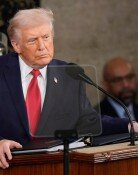10 major pledges announced by presidential candidates lack growth engines
10 major pledges announced by presidential candidates lack growth engines
Posted February. 15, 2022 07:49,
Updated February. 15, 2022 07:49
Lee Jae-myung, the presidential candidate of the Democratic Party of Korea, and Yoon Suk-yeol, the presidential candidate of the People Power Party, announced 10 major pledges after completing their registration as candidates last weekend. For the No. 1 pledge, Lee promised the complete recovery from the COVID-19 pandemic and complete support for small business owners while Yoon also put forward emergency help to overcome COVID-19 and post-COVID-19 plan. While reasonable compensation for small business owners who are reaching the limit should be provided, the two candidates seem to have put forward the pledges to win 5.5 million small business owners’ votes when each business owner’s size of damage has not been accurately identified.
There are many doubts about the two candidates’ other pledges on whether they can lead the post-pandemic economy into the direction of sustainable growth. Lee said 135 trillion won would be invested in digital transition to create two million jobs and raise South Korea’s national income average to over 50,000 U.S. dollars. However, it is not easy to drive a growth engine for the South Korean economy, which is already an advanced country, with government-led investment to help development. Meanwhile, Yoon said a specialized institution would be established to reform regulations to create good jobs. However, without a specific methodology, such as the U.S.'s 'two-for-one' rule to remove two regulations when introducing one, it may just remain as a slogan as it was the case for the previous administrations.
Lee also included basic income for all citizens as one of his pledges. According to his pledge, 12.9 trillion won will be required for the next year to provide 250,000 won per person and 51.6 trillion won will be required per year to raise it to one million won per person during his term. If his plans for funding, such as national land holding tax, face issues, only the national debt will soar. One of Yoon’s 10 pledges is a real estate supply plan, which includes providing 300,000 houses to young people at cost. As they will be cheaper than market prices, not only trillions of won of the budget will be required but also obtaining that much of land in Seoul and nearby regions will be difficult.
What’s more problematic is that the candidates’ pledges do not show a deep consideration of the challenges faced by the South Korean economy. Starting with May, one of them will have to deal with economic recession from global inflation and interest rate hikes, the ‘twin losses’ of finance and trade balance, and the issue of a sovereign rating due to the excessive national debt. Then, it will be revealed how unrealistic their dazzling pledges are.




![[단독]폴란드, 韓 해군 최초 잠수함 ‘장보고함’ 무상 양도 안받기로](https://dimg.donga.com/c/138/175/90/1/wps/NEWS/IMAGE/2026/02/27/133437397.1.jpg)


